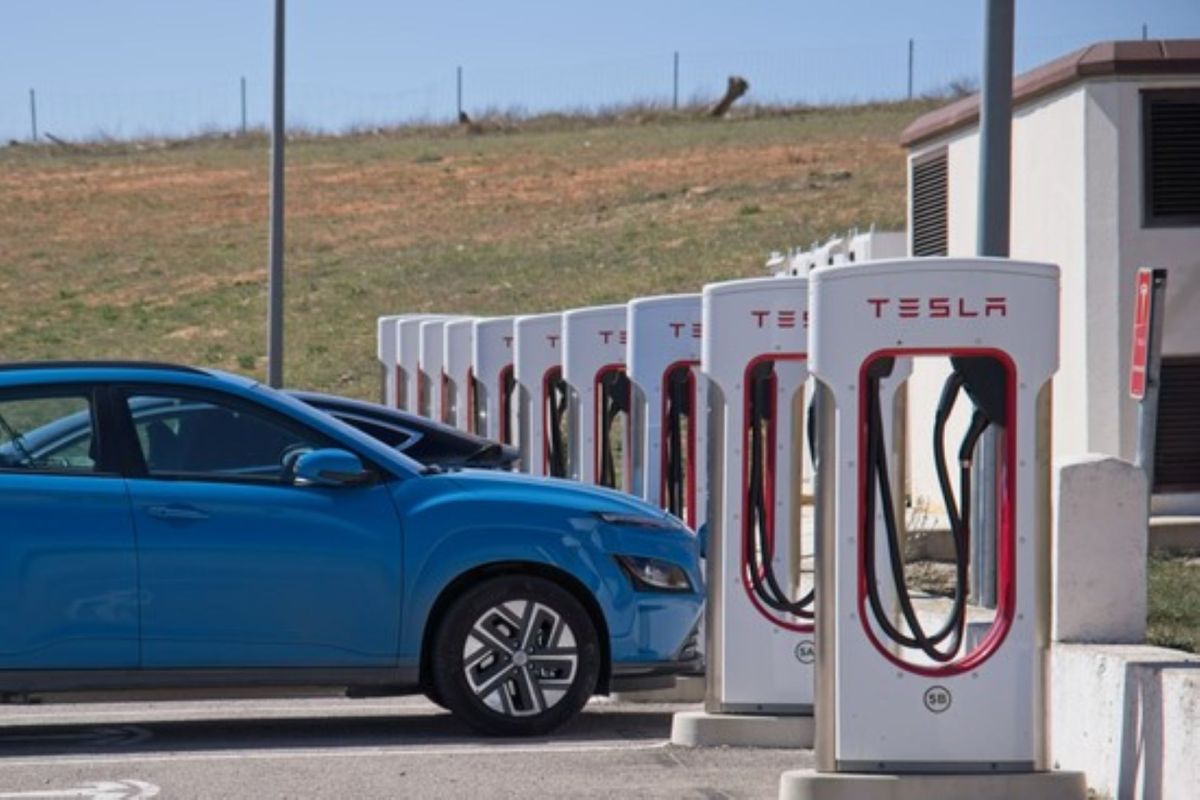The rise of Tesla has truly been something to behold. In the span of about 15 years, Tesla has gone from an expensive novelty to a common sight on roads worldwide and one of the most popular clean-energy vehicle brands on the planet.
According to electric vehicle website Licarco, Tesla sold around 100 of its Roadster model EVs in 2008. Fast forward a decade-and-a-half and over four million Teslas have reportedly arrived in the driveways and garages of environmentally conscious motorists.
In 2023 alone, Tesla delivered 1.82 million vehicles worldwide.
But with great responsibility comes the need for great power, and Tesla hasn't slouched on that front, either.
The Tesla Charging (@TeslaCharging) account on X, formerly known as Twitter, announced on Sept. 7 that Tesla had hit a huge milestone, with 50,000 superchargers now installed worldwide. Since only six were apparently available in the same month in 2012, reaching this number is a hugely impressive feat in a relatively short space of time.
Sept 2012: 6 Superchargers
— Tesla Charging (@TeslaCharging) September 8, 2023
Sept 2023: 50,000 Superchargers
The future is electric⚡️ pic.twitter.com/LR7g5qSYQj
Electrek observed that the company announced that 45,000 superchargers had been installed worldwide in April 2023, meaning 5,000 have been added to the network in less than half a year.
Tesla isn't stopping anytime soon, either. A deal between the EV manufacturer and hotel chain Hilton has been announced that will see up to 20,000 Universal Wall Connectors installed at sites around the United States starting in 2024.
Beginning in 2024, up to 20,000 @TeslaCharging Universal Wall Connectors slated to be installed at 2,000 @Hilton hotels in the US, Canada, and Mexico. Learn more: https://t.co/2HAREdIZJJ pic.twitter.com/0gCEMNvG03
— Hilton Newsroom (@HiltonNewsroom) September 7, 2023
It's a huge boost for Tesla customers across the globe, but it's also a massive win for the planet.
Tesla's EVs produce zero tailpipe pollution, which means there is little negative impact on air quality when the machines are out on the road.
Furthermore, according to the Environmental Protection Agency, even when accounting for the possibility that dirty-fuel sources were used to create the electricity needed to power the vehicle, an electric car is still responsible for much less planet-warming pollution than internal combustion-engine equivalents.
And with solar and wind power providing increasing amounts of energy to power grids, the comparative pollution reduction is even more significant.
Tesla's supercharger network, therefore, has helped the company deliver huge environmental benefits, taking more gas- and diesel-powered cars off the roads for the benefit of everyone.
Join our free newsletter for cool news and actionable info that makes it easy to help yourself while helping the planet.









